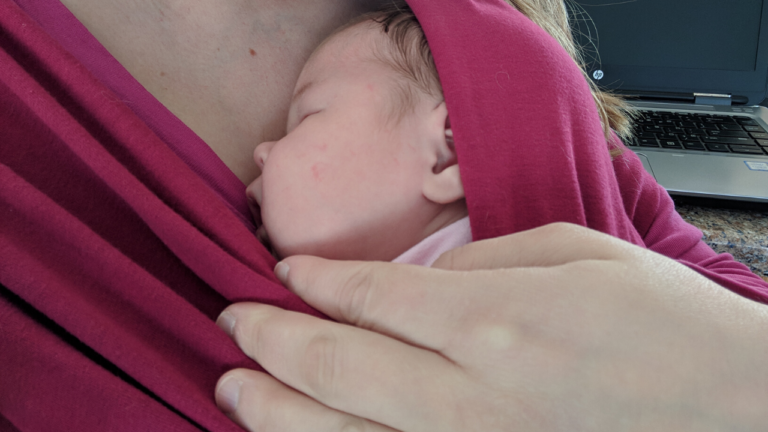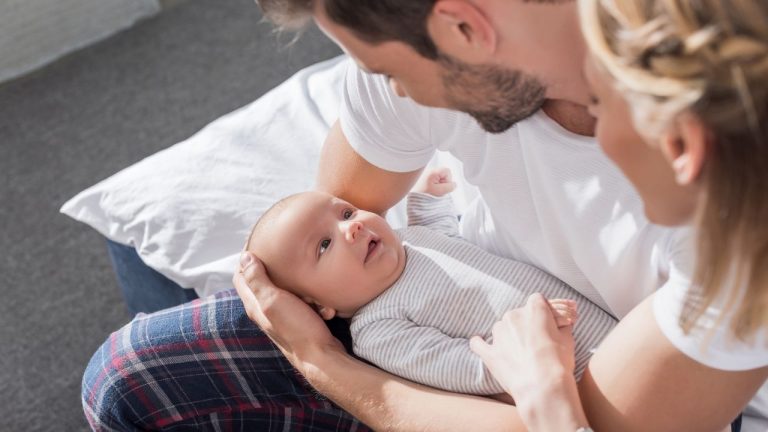17 Fine Motor Activities for Infants 0-12 Months
This post may contain affiliate links and we may earn commissions when you make a purchase through these links (at no extra cost to you). See our disclosure policy for more details.
What To Expect By Age, Plus Activities To Foster Motor Skill Development
Is there anything better than watching your baby hit a new milestone? Watching your baby grow and develop — and learn new things — is so exciting!
But what milestones should you expect your baby to hit? And how can you help to encourage their fine motor skill development?
That’s what we’re going to discuss in today’s post.
You’ll learn everything you need to know about fine motor skills and at what age to expect them. And, of course, some of the best fine motor activities for infants that help your little one’s growth.
Let’s get started!
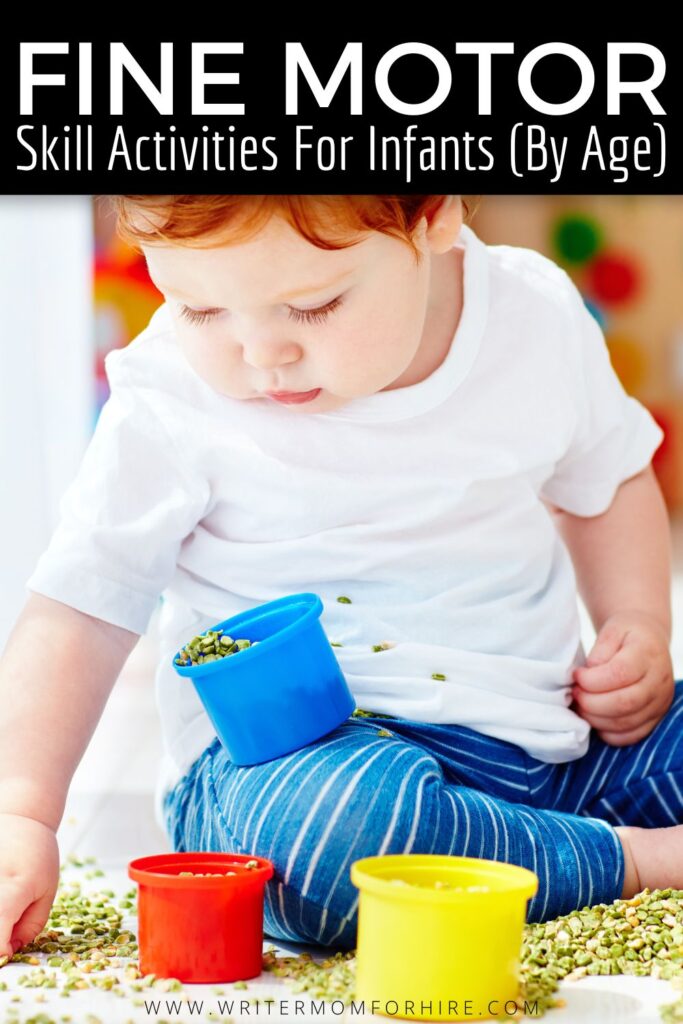
What Exactly Are Fine Motor Skills?
Fine motor skills are the ability to make movements with the hands and upper extremities. The fine motor skills your little one develops will set them up for an exciting life ahead. These movements include reaching, grabbing, and manipulating objects with their hands.
Fine motor skills focus on the movements of small muscles. You can encourage your child’s fine motor skill development through simple activities. These activities should be suitable for their age and development level.
These activities might seem small and insignificant to adults. However, they pave the way for more complex actions in later life.
It’s so much fun to see your precious little bub do something new, like picking up food off their plate, isn’t it? And now you know that simple actions like this will eventually translate to more complex functions. (Writing and tying shoelaces, for example.)
But don’t expect your baby to gain all of their fine motor skills all at once. There are various fine motor skills you can expect your child to demonstrate by age. Of course, you can provide simple activities to foster these skills — we’ll get to them shortly.
Just remember, this list should be viewed as a general guideline. Every child is different, so try not to stress too much if your little one isn’t strictly on track. Some kiddos just take longer than others!
Fine Motor Skills By Age
Not sure which fine motor skills you can expect your little one to demonstrate between 0-12 months? Here’s everything you need to know.
0-3 Months
• Makes fists with their hands
• Makes arm movements that aren’t controlled
• Brings hands to mouth
• Bats at objects and people using their arm
• Follow a person’s actions with their eyes
3-6 Months
• Starts reaching for toys
• Holds their hands together
• Starts noticing objects close to them
• Begins shaking toys in their hands
• Uses their hands as a claw to pick objects up with a scraping motion
6-9 Months
• Grasps objects
• Holds onto objects
• Points at objects using their index finger
• Brings objects to their mouth
• Squeezes objects with their fist
• Plays with hands
• Explores different textures with their mouths
9-12 Months
• Starts feeding themselves finger foods
• Turns pages in a book
• Places objects in a container or bucket
• Grasps objects in a pincer grasp (with index finger and thumb)
• Transfers objects between both hands
• Begins showing a preference for either their left or right hand
You may find that your infant develops some fine motor skills earlier than others. You may find that they also develop other fine motor skills later than others. This list serves as a guide for what you can roughly expect. It’s designed to be a useful tool when measuring your child’s progression.
Activities to Foster the Development of Fine Motor Skills
There are lots of fine motor activities available for infants to help your little one develop and grow. The following activities are great for encouraging fine motor skills. The older your baby gets, the more activities you can engage them with!
0-3 Months
You can show your 0-3 month old different toys that stimulate their senses. Engage in the below activities to develop fine motor skills during the newborn stage.
1. Engage your baby by introducing them to musical mobiles.
2. Offer your baby a rattle that makes a fun sound.
3. Place a hanging toy above your baby so they can touch it. This helps their hand-eye coordination.
3-6 Months
Now’s the time you’ll really start to see changes in your baby’s development. Between 3-6 months of age, your baby will start grasping and shaking toys with confidence. Since they’re a little bit older now, you can do the following activities to help foster development.
4. Offer your baby both large and small toys with various textures. This helps them become more comfortable with new objects in the palm of their hand.
5. Are you finding that your little one keeps putting toys in their mouth? This is completely normal and actually encouraged! Let your baby explore new objects with their mouth — it’s a very effective exploration tool for learning new things at this stage!
6-9 Months
Babies typically start exploring solid food around 6-9 months. This is an exciting (albeit messy!) time for both parents and babies as they navigate the stimulating world of food. Consider the following activities during this stage.
Please note that all of these activities should be carefully supervised, especially when they involve small objects!!
6. Give your baby different finger foods to explore. If your little one plays with their food more than eating it, remember that this is completely normal. This is all part of your baby exploring the new eats put in front of them!
7. Offer your baby a baking sheet with large magnets like these placed on it. As your baby attaches and removes the magnets with their fingers, this helps exercise the muscles in their hands.
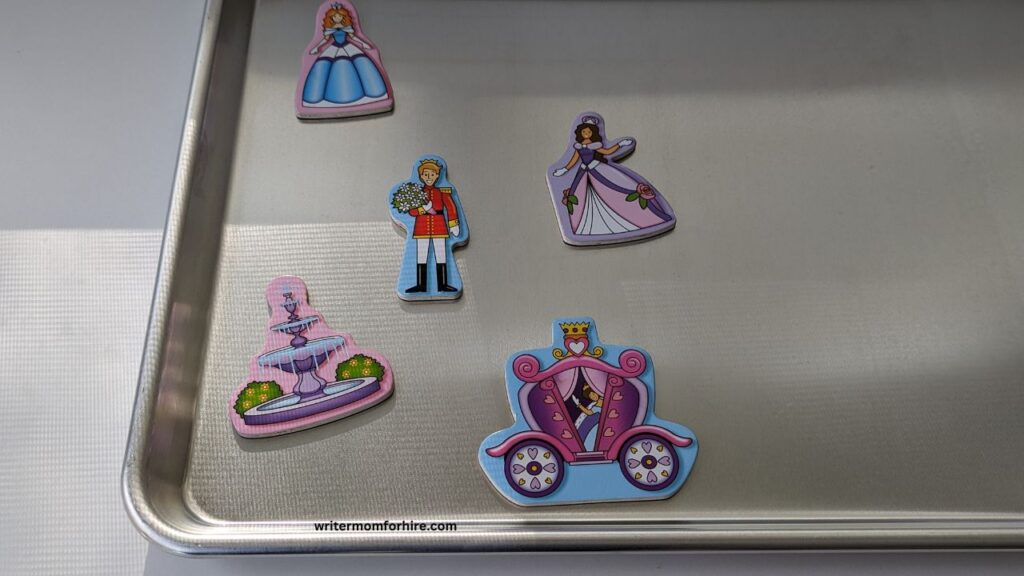
8. Give them a rattle or toy in each hand. Encourage passing toys from hand to hand.
9. Let your baby hold their own bottle or sippy cup, and allow them to bring it to their mouth.
9-12 Months
As your baby starts nearing their first birthday, you can engage in plenty of activities with them to keep encouraging fine motor skills. Your baby is probably making leaps and strides already, but these activities can also help!
Please note that all of these activities should be carefully supervised, especially when they involve small objects!!
10. Fill up a small tub or bowl with water and let them have fun exploring!
11. If you have a muffin or cupcake tin, offer this to your baby, along with toys. They will love filling up the holes and moving the items around!
12. Encourage your baby to wave “hi” and “bye” when you leave the room or go out.
13. Start introducing your baby to utensils. Yes, it will be messy and, yes, you may want to give up, but it will be so worth it. In the end, your baby will learn the valuable skill of eating with utensils.
14. Get a large bowl or bucket and bath toys like these — something that isn’t a choking hazard. Encourage your baby to drop the items into the bowl and retrieve them.
15. Blow bubbles for your baby to pop.
16. Encourage them to turn the pages of a baby-friendly book.
17. Offer baby-friendly puzzles to play with — even if they can’t quite put them in the correct places, it’s a great way to introduce problem solving skills early on.
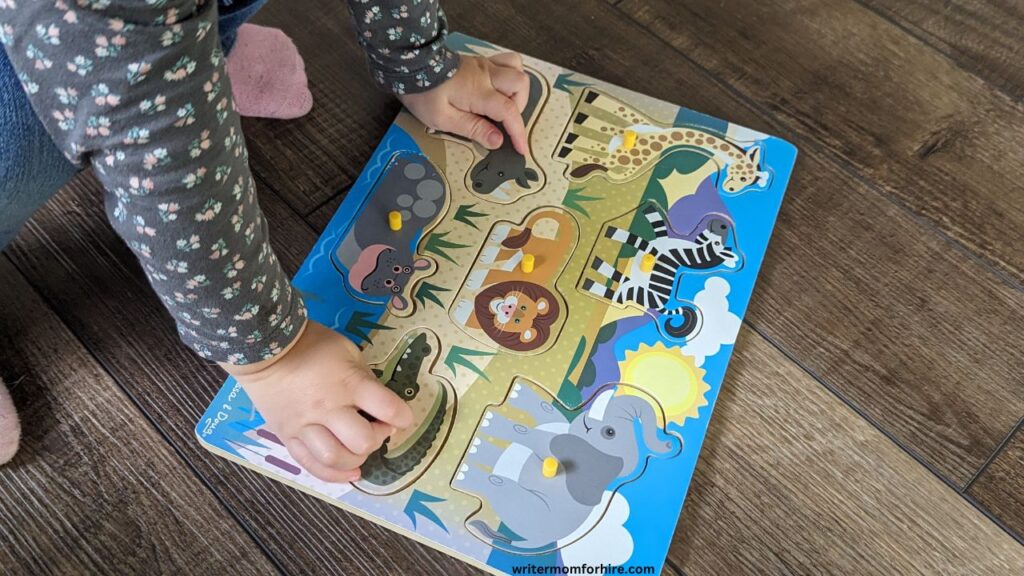
Things That Can Affect Fine Motor Development
Wondering why your child isn’t developing at the same rate as other babies? Or why they aren’t exactly on schedule with the items on this list?
While all babies develop at their own pace, some might be experiencing:
- A lack of interest in food or self-feeding.
- Low muscle tone.
- Inability to tolerate new experiences.
- Delay in movement or coordination planning.
- Delay in sitting or tummy skills.
- A lack of finger or hand strength.
- Delayed visual motor development.
If, by their first birthday, your baby is unable to point at objects, hold items in their index finger and thumb, or clap/wave, you might consider professional help.
Fine Motor Activities for Infants
There’s nothing quite like watching your little one develop throughout their first year of life. If you’re looking to help encourage your baby’s fine motor skills, why not try out some of the above fine motor activities for infants?
They’re not only great for their development, but they also help both of you bond as you sit and play together. But just remember — every child is different and will develop at their own pace. Take it easy, have fun, and enjoy watching your baby grow!
Read More:
Baby’s 1st Birthday Time Capsule Ideas
7 Tips To Prepare For The First Day Of Daycare For Your Infant




